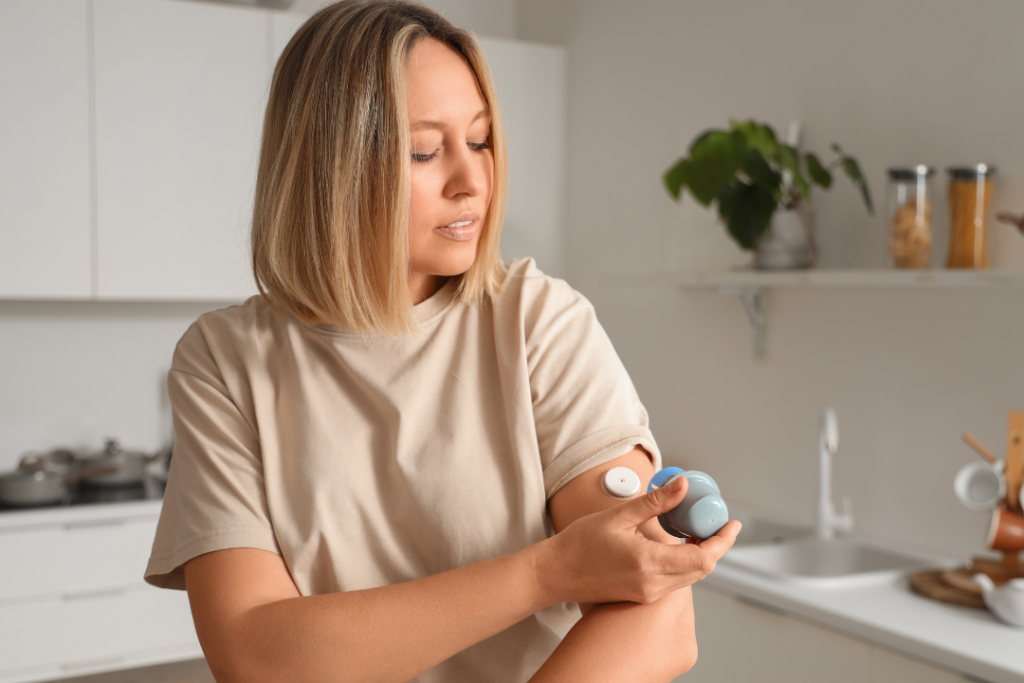Technology in Diabetes

Technology in Diabetes Management
Advancements in technology have significantly improved the management of diabetes, making it easier for individuals to maintain blood glucose control and enhance their quality of life.
- Continuous Glucose Monitors (CGMs): CGMs are devices that provide real-time, continuous readings of blood glucose levels. These devices consist of a small sensor placed under the skin, which measures glucose in the interstitial fluid. The data is transmitted to a wearable device or smartphone, allowing for constant monitoring and alerts for high or low glucose levels. CGMs help in making timely adjustments to diet, exercise, and medication, improving overall glucose management.
- Insulin Pumps: Insulin pumps are compact devices that deliver a continuous supply of insulin through a small catheter placed under the skin. This technology allows for precise control of insulin delivery, which can be adjusted based on meals, exercise, and glucose levels. Insulin pumps can reduce the need for multiple daily injections and provide a more flexible and tailored approach to insulin therapy.
- Smart Insulin Pens: Smart insulin pens are equipped with digital technology to track insulin doses and provide dosage recommendations. They can store data on insulin administration, helping users keep track of their insulin use and adhere to their prescribed regimen. Some smart pens can connect to mobile apps to provide insights and reminders, making diabetes management more convenient.
- Blood Glucose Meters: Modern blood glucose meters have become more user-friendly and accurate. Many meters now offer features like Bluetooth connectivity, allowing data to be shared with smartphones or healthcare providers for better tracking and analysis. These meters can also provide historical data and trends, aiding in more informed decision-making.
- Diabetes Management Apps: Numerous apps are available to support diabetes management by tracking blood glucose levels, diet, physical activity, and medication. These apps often come with educational resources, reminders, and data-sharing capabilities, enhancing communication with healthcare providers and fostering better self-management.
Technology continues to evolve, offering new tools and solutions that make diabetes management more effective and personalized. By integrating these technologies into daily routines, individuals with diabetes can achieve better control of their condition and improve their overall health and well-being.
